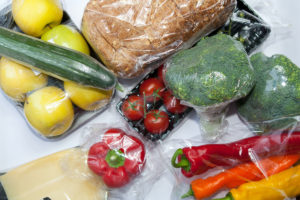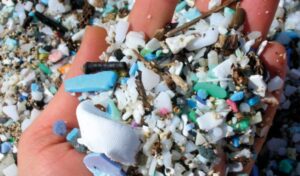Environment Ministers discuss sustainable economic recovery; complete action plan on zero plastic waste
On July 23, 2020 federal, provincial and territorial environment ministers discussed how action on environmental priorities across Canada will contribute to the economic recovery as the country eases restrictions during the coronavirus pandemic.
Ministers discussed a range of environmental priorities including climate change, plastic waste, and a transition to a circular economy. They devoted a major portion of their meeting to sharing perspectives and strategies for a sustainable post-pandemic recovery. Ministers expressed support for creating jobs and long-term economic prosperity in every part of the country as part of a Canada-wide response to the impacts of COVID-19, while maintaining their commitment to a low-carbon economy and building resilience to climate change. Ministers also discussed the emerging issue of higher volumes of waste and litter from personal protective equipment. Ministers agreed that jurisdictions will work together to assess the extent and nature of the issue and consider how to mitigate environmental impacts.
“Discussions today underscored the importance of governments working together to address the challenges presented by the COVID-19 crisis and ensure an environmentally and economically resilient recovery,” said Dustin Duncan, Saskatchewan’s Minister of Environment, who hosted his colleagues by teleconference.
Ministers also released the second and final phase of the Canada-wide Action Plan on Zero Plastic Waste. With both phases now released, ministers have agreed to a comprehensive action plan to implement the Strategy on Zero Plastic Waste which they had approved in principle in November 2018. This important new step will contribute to achieving the common vision of keeping plastics in the economy and out of the environment.
“The COVID-19 pandemic has demonstrated the key role of some plastics in saving lives and minimizing the spread of disease with personal protective equipment,” said Minister Duncan. “However, the end-of-life management of plastics presents significant challenges and as environment ministers, we are taking ambitious actions to reduce and prevent plastic pollution.”
Plastics need to be managed within a circular economy in order to prevent them from going to landfills or becoming litter in the environment. Plastic pollution threatens the health of Canada’s terrestrial and aquatic ecosystems. With the longest coastline in the world, and being home to vast marine and freshwater resources, collective efforts across Canada to reduce plastic pollution will have a global impact.
The second phase of the action plan focuses on enabling activities to support the Strategy on Zero Plastic Waste, and to prevent and manage plastic pollution on land and in oceans, inland lakes, and waterways, including the Great Lakes. It outlines timelines for tangible, coordinated action to: manage plastic waste from aquatic activities, including fishing and aquaculture; advance science to better understand and monitor the impacts of plastics pollution and inform solutions along the value chain; support capture, clean-up and prevention of plastic pollution; build consumer, business and institutional awareness; and continue Canada’s role as a global leader in plastic waste reduction.
Ministers thanked the range of stakeholders and interested parties who provided input into the development of the second phase, including academics, business leaders and industry associations, environmental and non-government organizations, Indigenous organizations, and local governments.
The comprehensive action plan will be implemented collaboratively and within the jurisdictional authority of each order of government by 2025. Together, phases one and two recognize the shared responsibility among jurisdictions for preventing plastic waste and provide flexibility for jurisdictions to implement actions that meet their unique individual needs. The action plan also recognizes the roles of industry, communities, and consumers, to reach zero plastic waste.



